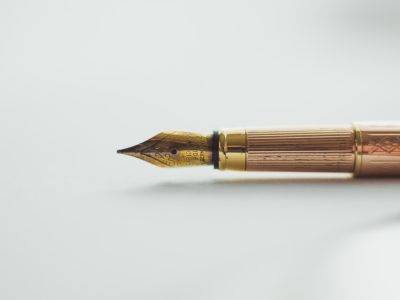Obligation to Write Letter of Recommendation for Other Engineers -- NSPE Case No. 77-7

The Board of Ethical Review (BER) discusses the nature of the obligation to write letters of recommendation and the value of professional-society membership in one engineer's respect for another. This is a historical case reviewed by the NSPE Board of Ethical Review in 1977.
Facts
Engineer Smith was being considered for promotion by his employer to a higher level professional position. The employer contacted other engineers who had worked previously with Engineer Smith for their comments. One of these was Engineer Doe, who was currently employed by another company and who did not have any current direct professional relationship with Smith. Doe replied to the employer that he would not submit a comment on Smith's qualifications or engineering competence because Smith had dropped his membership in the state professional engineering society. Doe stated that in his view it is professionally incumbent on all engineers to support their profession through membership in the professional society, preferably in an active role, or at least by payment of society dues. Smith alleges that Doe acted unethically in submitting that reply to the employer.
Question
- Was it ethical for Doe to submit the above reply on Smith's professional qualifications for the reasons given by him?
References
- Code of Ethics - Section 12 - "The Engineer will not attempt to injure. maliciously or falsely, directly or indirectly, the professional reputation, prospects, practice, or employment of another engineer, nor will he indiscriminately criticize another engineer's work. If he believes that another engineer is guilty of unethical or illegal practice. he shall present such information to the proper authority for action."
- Section 15 - "The Engineer will cooperate in extending the effectiveness of the profession by interchanging information and experience with other engineers and students, and will endeavor to provide opportunity for the professional development and advancement of engineers under his supervision."
Discussion
There is nothing in the Code of Ethics which directly or indirectly imposes a duty on an engineer to write a letter or otherwise comment on the qualifications of other engineers. An engineer may ethically decide to ignore a request for personal comment on the attributes or qualities of others.
The novel aspect of this case, however, is whether an engineer may base his refusal to comment on the professional qualifications of other engineers for the reason that the other engineer has chosen not to participate in the professional society. From our vantage point of active membership in a professional society, we are tempted to look with favor on the philosophy of Doe and agree with him that all engineers should support the work of their appropriate professional societies as the only effective means to enhance the role and recognition of their chosen profession.
But the controlling question is whether Doe acted contrary to Section 12's injunction not to injure the prospects of another engineer by the tone and nature of his comment to Smith's employer. Arguably, Smith's employer might read Doe's statement of refusal to comment for the reasons given as a negative comment on Smith for a higher position. Although it is a close question, we believe that Doe has done Smith an injustice from an ethical standpoint in submitting negative comments while taking the position that he did not wish to comment on Smith's qualifications. We reach this conclusion with some reluctance in view of our strong agreement with the concept of support of engineering societies by individual engineers, but our bias in that direction is tempered by the equally important principle that individuals are and ought to be free to join or not join voluntary societies or organizations. Contrary to this controlling principle, Doe's approach to the request for comment on Smith was prejudicial without a proper ethical basis.
We have noted Section 15 in the references, but do not feel its relevance needs detailed discussion or analysis because its requirements run only to an interchange of information and experience directly related to the work product of engineering, rather than to the personal attitudes or attributes of individual engineers.
Conclusion
It was not ethical for Doe to submit his reply on Smith's professional qualifications for the reasons given by him.
Board of Ethical Review
- Robert R. Evans, P.E.
- James G. Johnstone, P.E.
- Joseph N. Littlefield, P.E.
- Donald C. Peters, P.E.
- James F. Shivler, Jr., P.E.
- L.W. Sprandel, P.E.
- William J. Deevy, P.E., chairman.
NSPE Code of Ethics An earlier version may have been used in this case.
This opinion is based on data submitted to the Board of Ethical Review and does not necessarily represent all of the pertinent facts when applied to a specific case. This opinion is for educational purposes only and should not be construed as expressing any opinion on the ethics of specific individuals. This opinion may be reprinted without further permission, provided that this statement is included before or after the text of the case.
For a version of this case adapted for classroom use, see: Maintaining Professional Standards: Writing a Letter of Recommendation (adapted from NSPE Case No. 77-7).

